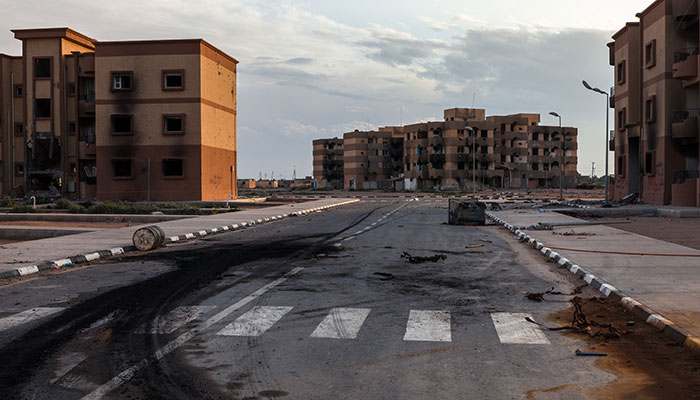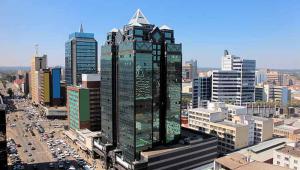A report by Chatham House has concluded that continued political, security and economic crises have weakened state institutions in Libya and damaged its economy.
The “fragmentation and dysfunction” that has been caused by rival authorities competing for power in the north African country has left it with a “pervasive war economy dependent on violence”, according to the briefing paper released last week.
The Chatham House paper has described a ‘war economy’ as one where a state’s economic activities are dependent – directly or indirectly – on continued conflict, such as relying on proceeds from black markets and smuggling.
“The international community can do more to support Libyan efforts in countering the war economy,” Chatham House research fellow Tim Eaton has written in the paper.
“Cooperation over the targeting of criminal groups’ overseas assets, support for increased transparency over the dispensation of state funds, and measures to reduce the viability of illicit activities can all help to strengthen the position of state authorities.”
He said the war economy in Libya as “dynamic and constantly in flux”, and is being drive by money taken from the state, human smuggling and extortion.
Eaton added: “The formal economy has been overtaken by a black market economy and increasingly the ability to dispense force is decisive.”
The paper - Libya’s War Economy: Predation, Profiteering and State Weakness – has suggested that as the war economy persists, the further the country moves from re-establishing a legitimate and formal economy.
This will lead to a vicious cycle that “accelerates further state collapse,” according to Easton.
While estimating the value of illicit economies is difficult, the paper has stated, it calculates that revenues from human smuggling in Libya were around $978m in 2016.
The Libyan civil war is an ongoing conflict among rival factions looking for control of territory and oil in Libya.
The current conflict start after Libya’s long-term leader Muammar Gaddafi was overthrown in 2011 following an uprising, which was part of the Arab Spring movement to overthrow leaders in the Middle East and North Africa. That wave of revolutions began in Tunisia in 2010.














